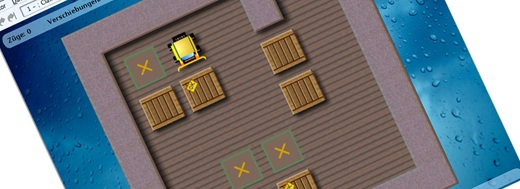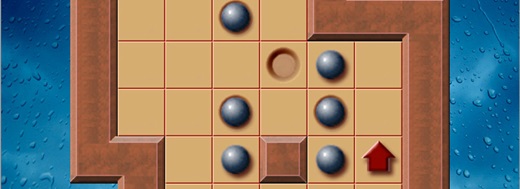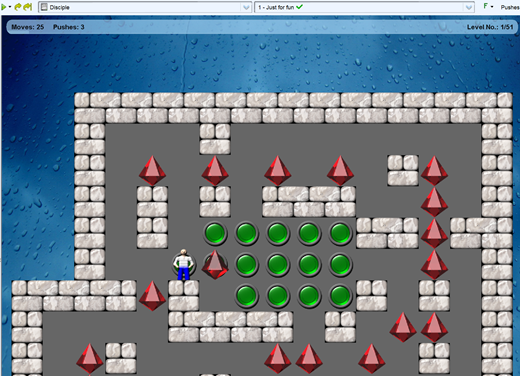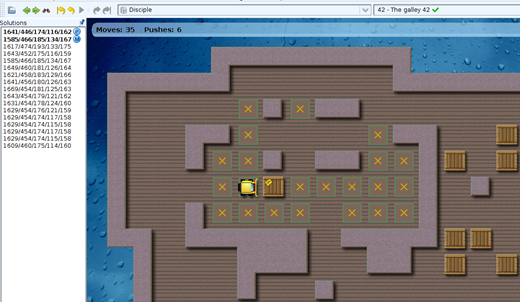JSoko
JSoko is a Java program for playing the Sokoban game.
It's developed as an open source program at www.sourceforge.net
Current version of JSoko is 2.25
Suggestions or any questions? Write to: JSoko(at)mail.de
Sokoban News
Sokoban for Windows 3.4 build 1 has been published
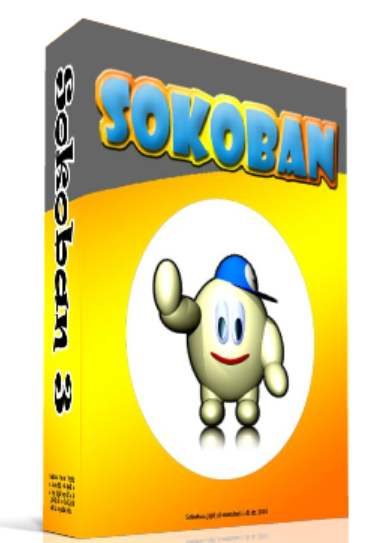
Björn Källmark has published Sokoban for Windows version 3.4 build 1.
Release notes for this version:
- Stability improvements
- Number of players is now restricted to four
- First step to make individual Top Solvers lists
- Improved Option dialogs
- Improved database handling
- And much more
A feature comparison of the main Sokoban programs can be found in the Sokoban Wiki.
YSokoban 1.851 has been published
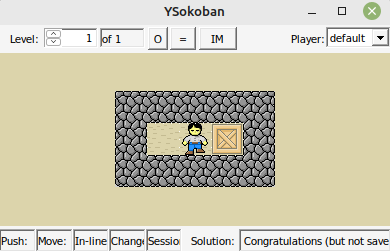
George Petrov has published YSokoban 1.851.
The release notes for this new version:
- Bugfix: wrong calculation of "changes" and "Inlines" during undo on right/left rotated level.
JSoko 2.25 has been published
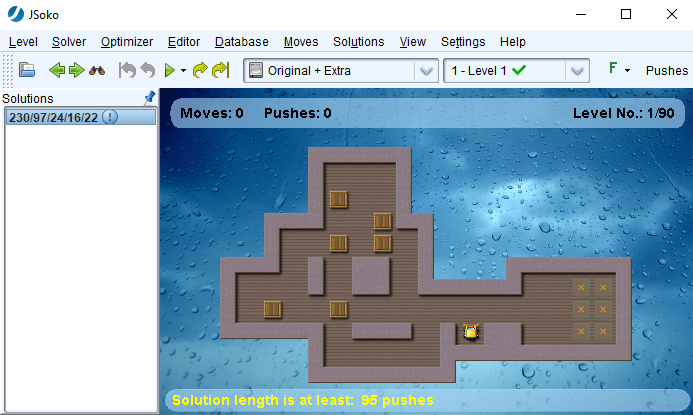
A new JSoko version has been released.
Please check out the release notes.
Please report any bugs, problems or suggestions to: JSoko@mail.de
Sokoban e-mail group
Visit: Sokoban group
Acknowledgements
JSoko is developed with the help of the YourKit Java Profiler.
YourKit is kindly supporting open source projects with its full-featured Java Profiler. YourKit, LLC is the creator of innovative and intelligent tools for profiling Java and .NET applications. Take a look at YourKit's leading software products:

